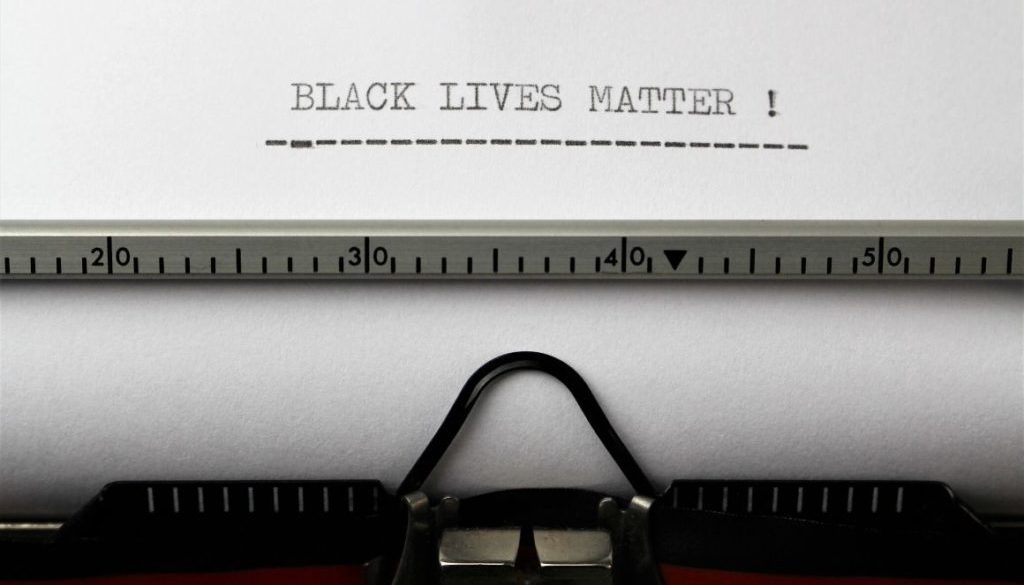Corporate Communication: Black Lives Matter Distinguishes Substantive Action From Empty Gestures
George Floyd’s death at the hands of police has sent a shock throughout the United States which has echoed to the rest of the world. Floyd was the catalyst for the protests we continue to see around the globe, but he has also given a platform for discussions on police brutality, criminal justice reform, and systemic racism. People have been organizing in cities worldwide, nearly every day, protesting and demanding an end to racial injustice for the past month.
Thus, we have also seen mighty social justice warriors come out of huge corporations. Corporate America has responded by attempting to realign company values with what consumers care about. The NFL suddenly came out in support of the Black Lives Matter Movement, and Nike struck a chord in the hearts of many with their “For Once, Don’t Do It” video.
But skeptics, which most Gen Z and Millennials tend to be, still find it hard to feel a personal connection with them. Sometimes corporate communication can feel inauthentic and leaves its audience feeling negatively towards them. While it’s important, in this climate, for certain brands and corporations to make a statement on racial injustice, it’s even more important for those words to be backed with real action. Without taking any initiative in the fight against racial injustice, your words are purposeless and will likely be penalized by the public.
This begs the question; how can your brand genuinely speak to and support the Black Lives Matter movement?
Avoid (Inauthentic) Brand Activism
The resurgence of a modern-day Civil Rights Movement has allowed companies to do and be better. It has given a rare opportunity to position themselves as better leaders and empaths —but it must be done carefully, as there are various audiences and considerations to take in. If your brand is exploiting the Black Lives Matter movement to sell or promote something by responding to the situation, the results could be disastrous.
In its core, brand activism is a positive concept. We continue to see increases in brands who take on philanthropic movements and take stands on political and social issues; something that was once taboo. Many brands do lobby, donate, and volunteer. But unfortunately, the majority of corporations make statements while their track records fall flat.
Netflix tweeted a message in solidarity with the Black Lives Matter Movement and added a Black Lives Matter genre filled with a collection of 45 shows, movies and documentaries that highlight racial injustice. But the actions soon came under scrutiny, with critics saying that the sentiment, while nice, is not enough. Rather, donating to organizations, and hiring and promoting more black content creators is what the public demands. People want to see real action taking place, otherwise, your brand will be labeled as the tone-deaf opportunist trying to take advantage of a situation, which will not sit well with the public.
Put Meaning Into Your Message
In today’s world, being a performative ally is no longer acceptable. Taking real, constructive action against racism is authentic and will strengthen the relationship between consumer and brand. Ben and Jerry’s recently came out with a strong message against white supremacy where they also called upon President Trump to denounce white supremacy and Congress to pass legislation to tackle this issue. They are also partners with organizations like Color of Change and the North Carolina NAACP. If that wasn’t enough proof, when you look up their history, you will find that founders Jerry Greenfield and Ben Cohen have been arrested on multiple occasions while protesting racial injustice and other social issues.
Amazon already has a rocky reputation and is typically a good example for other brands of what companies should not do; so when the tech giant came out in support of the movement and police reform, people were quick to call out the discrepancies in their statements. They have a history of paying their warehouse workers, many of whom are black, extremely low wages.
Commit The Right Way
A question that many businesses may have is how to address racial inequality or any other social issues in the future. Before you start bombarding your Instagram feed with solidarity posts, start the work inside the workplace. 91 percent of millennials and 85 percent of the average U.S. public would switch brands to one that is associated with a cause. Those are enticing numbers for some, but before you start sharing your commitment to social justice, you have to, well… commit to social justice. While your intentions may be pure, it is not always perceived that way. It becomes a lot trickier for a brand to prove their loyalty to the cause if there is no record of that loyalty.
Instead, research and listen first. Take care of your employees. It is clear now more than ever that companies who become real thought leaders amid a social revolution will far outweigh the benefits of any sale or self-promotion by exploiting the Black Lives Matter movement.
Lexie Kilpatrick is an Assistant Account Coordinator at Flackable, a national, full-service public relations agency headquartered in Philadelphia. To learn more about Flackable, please visit www.mariaa191.sg-host.com.




